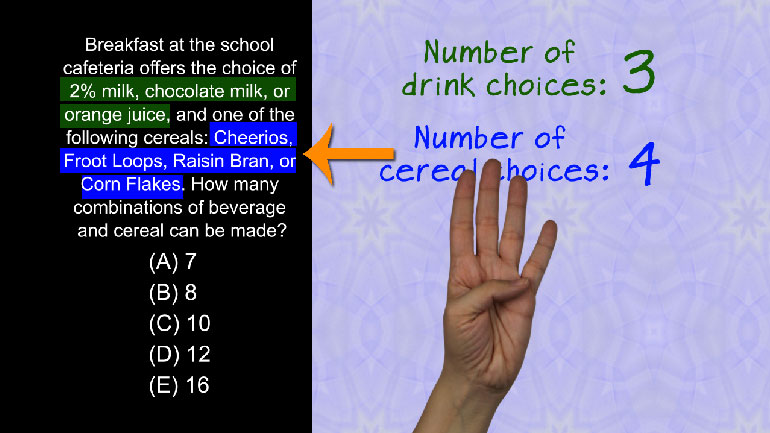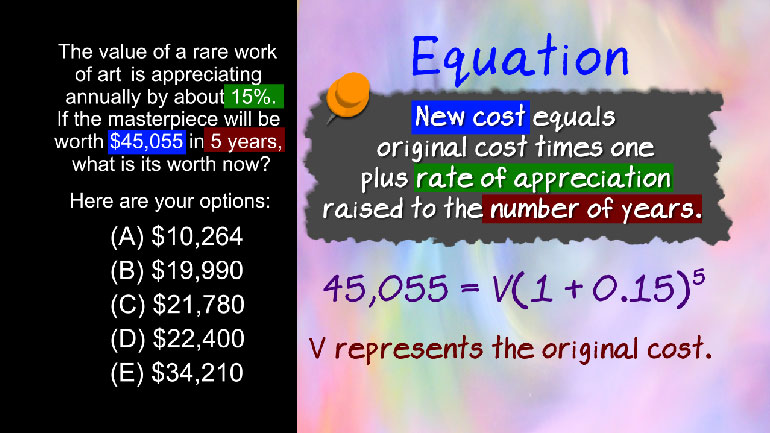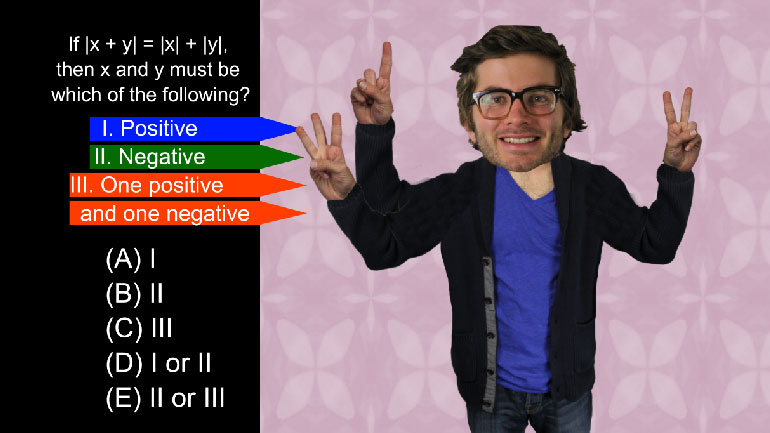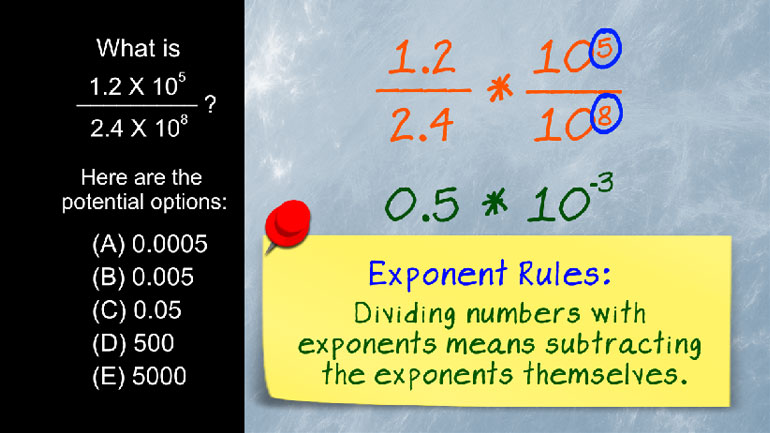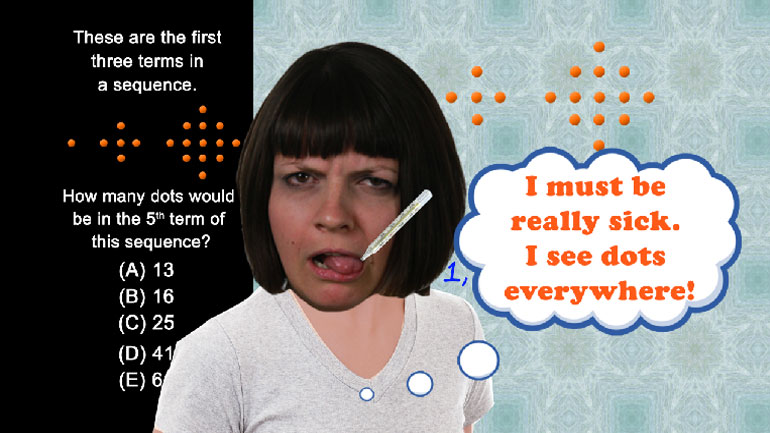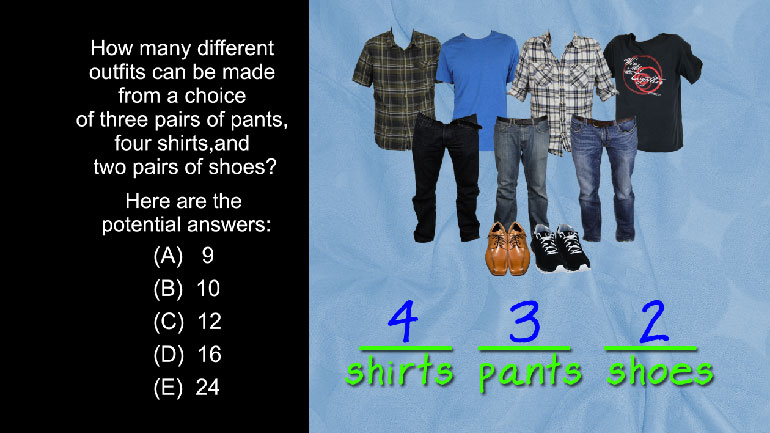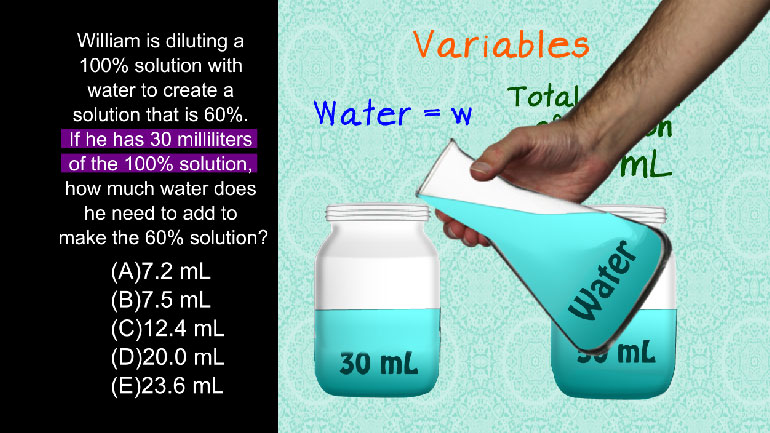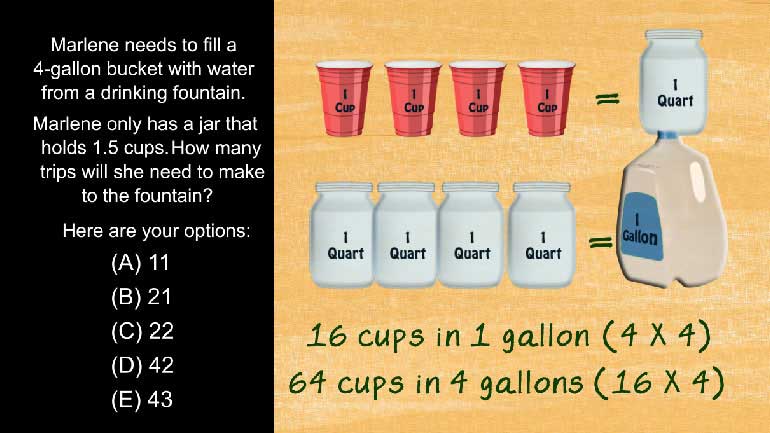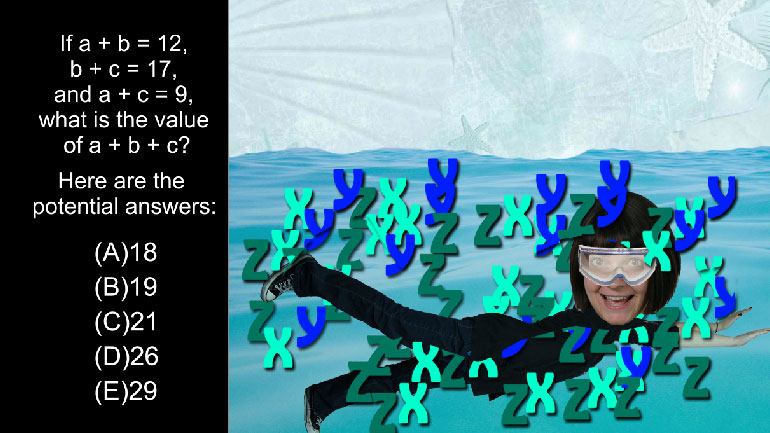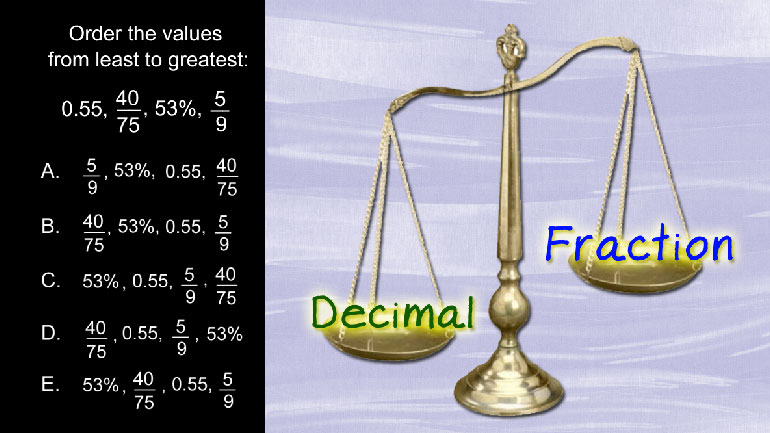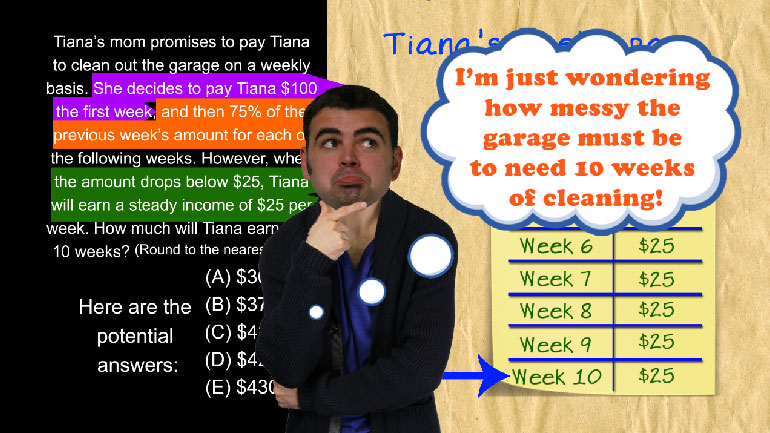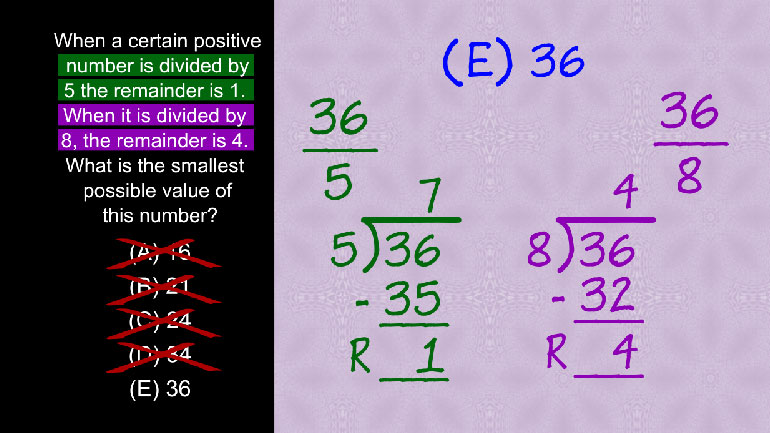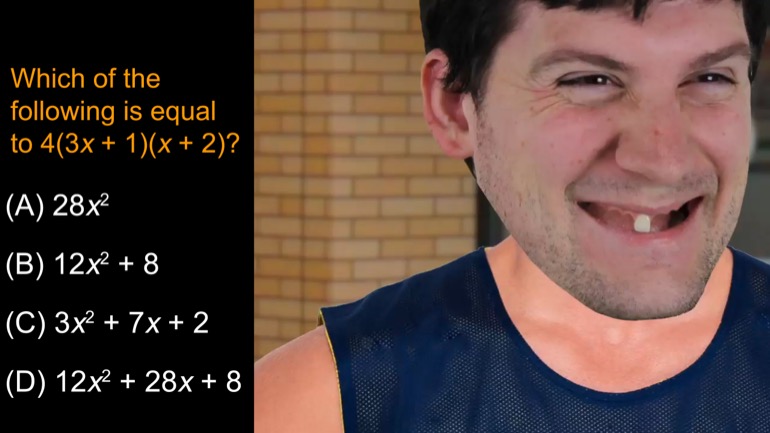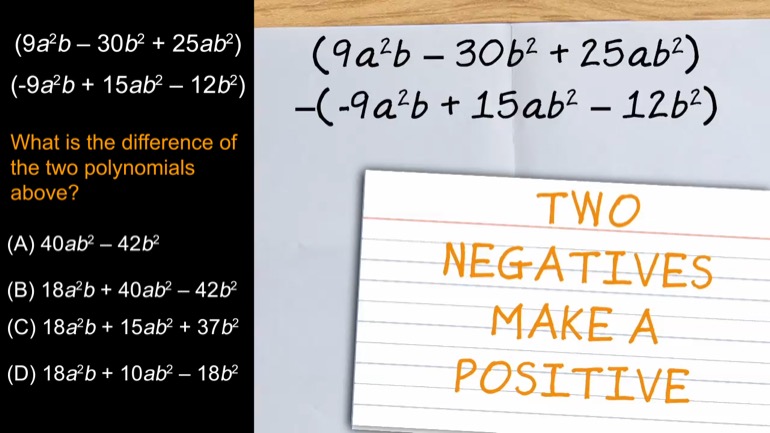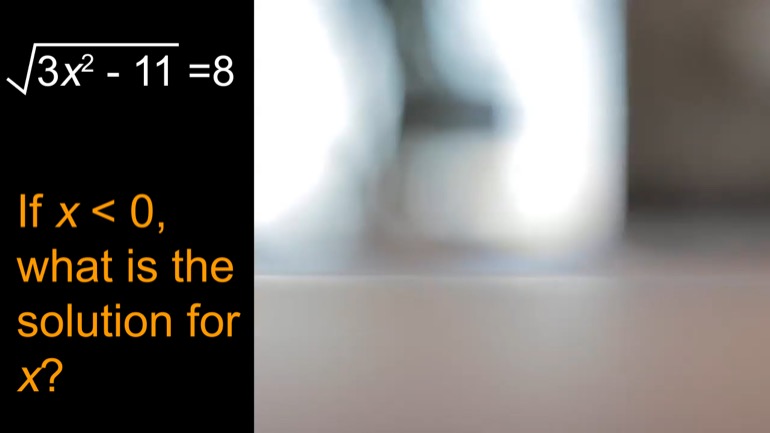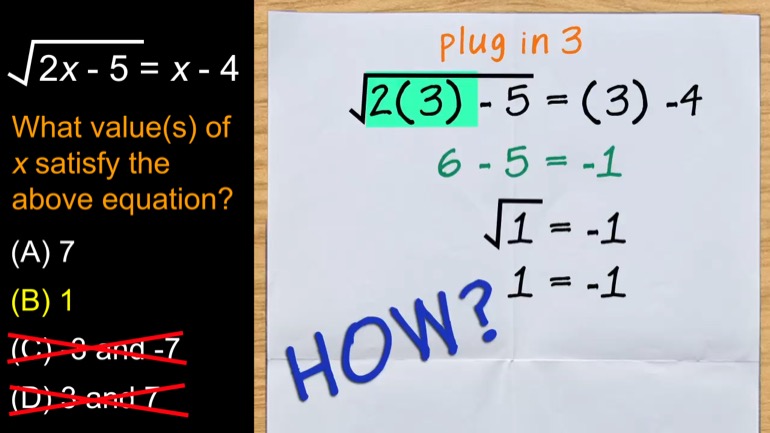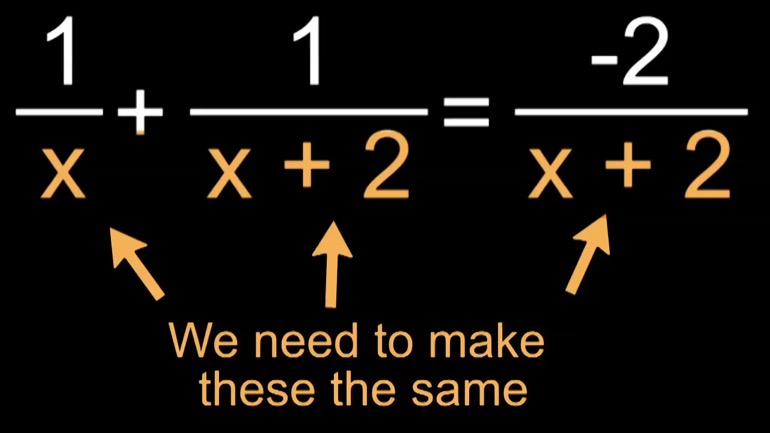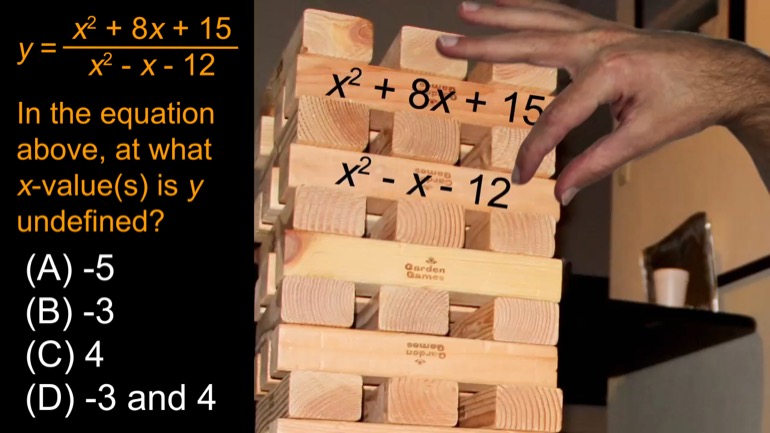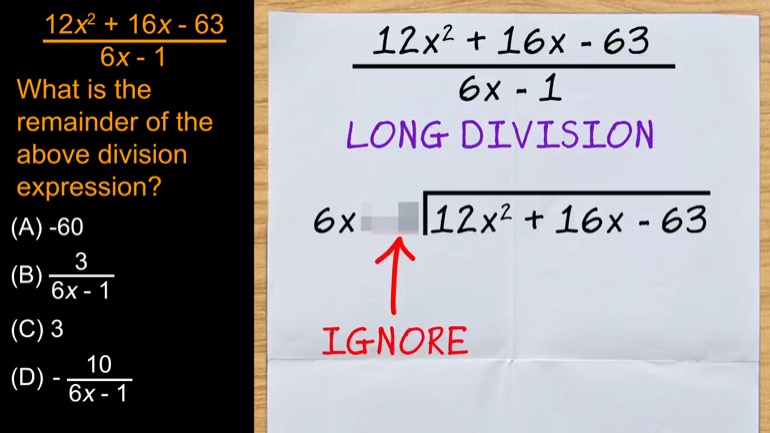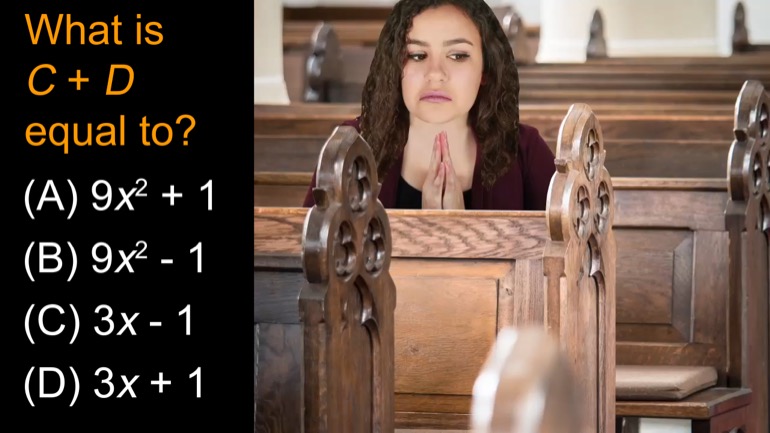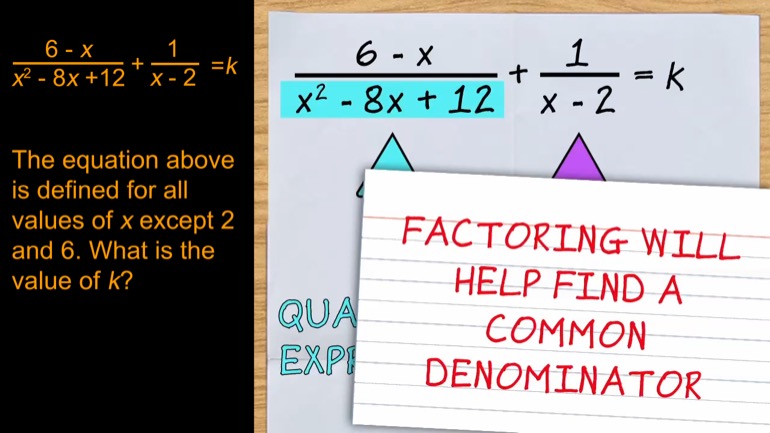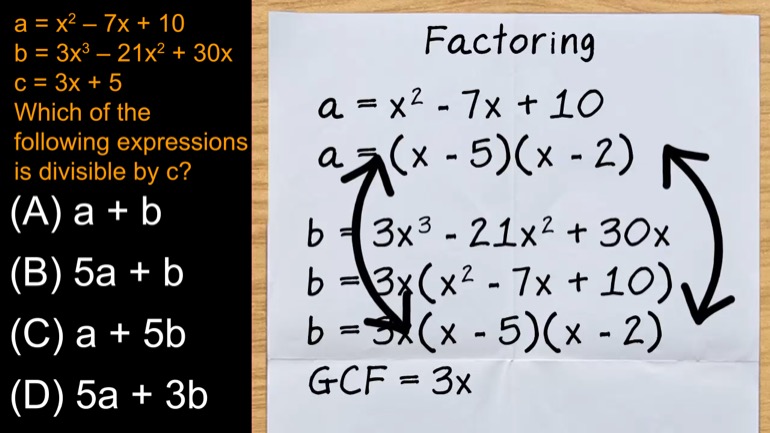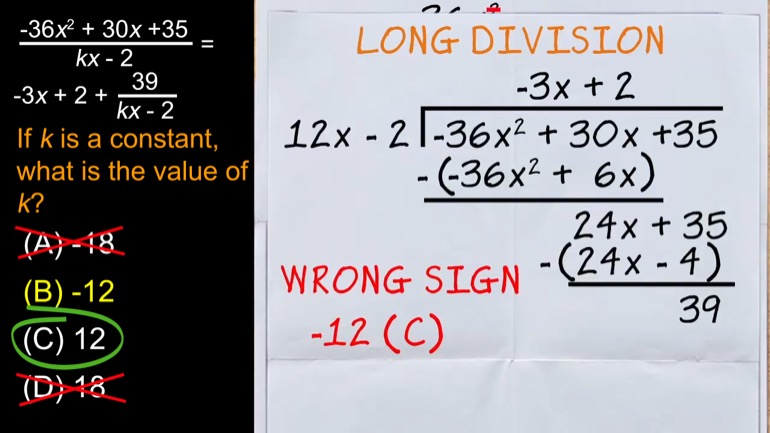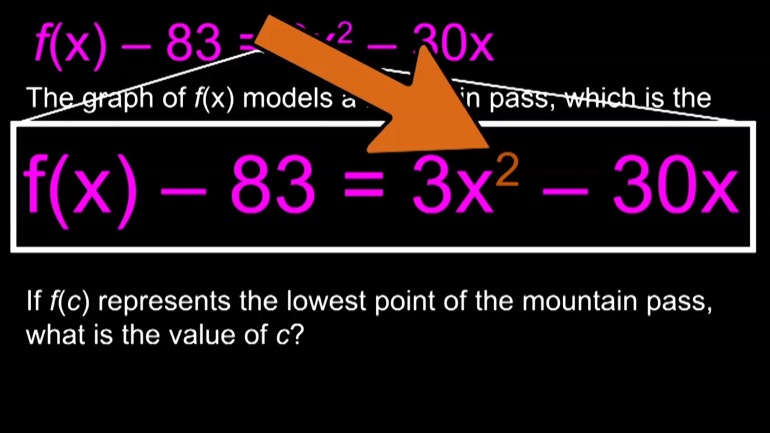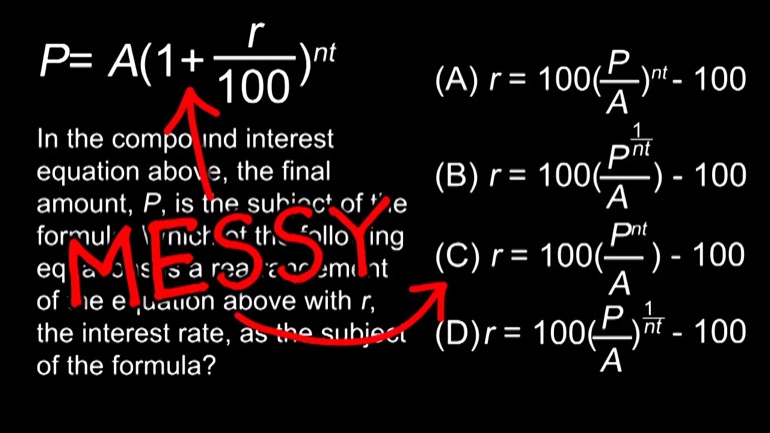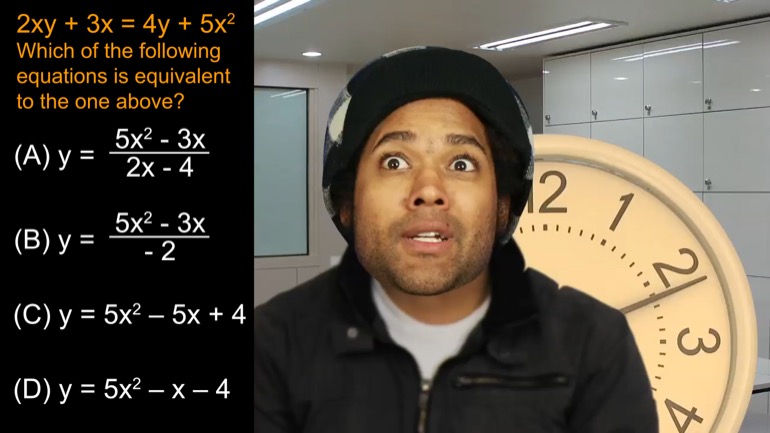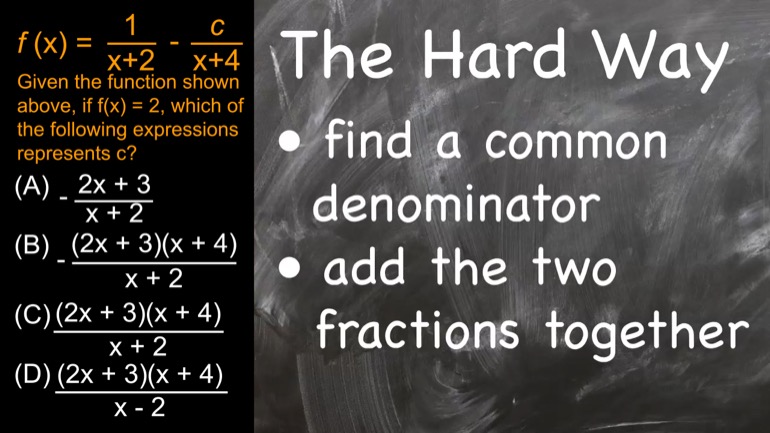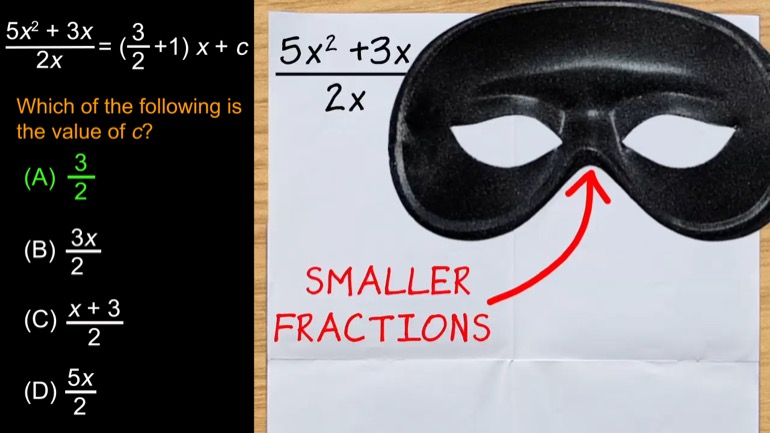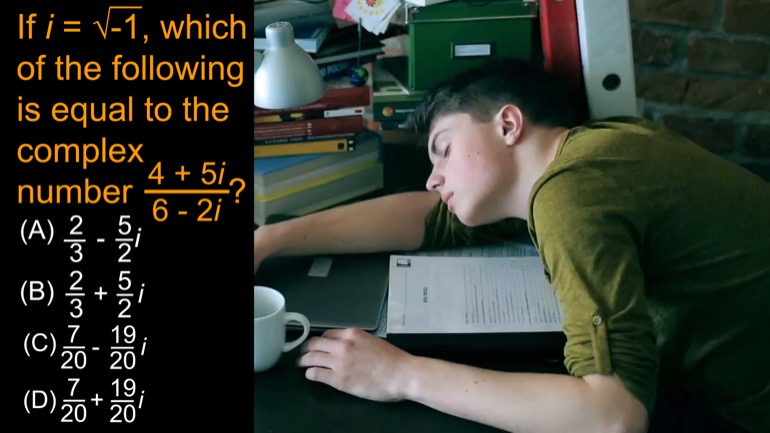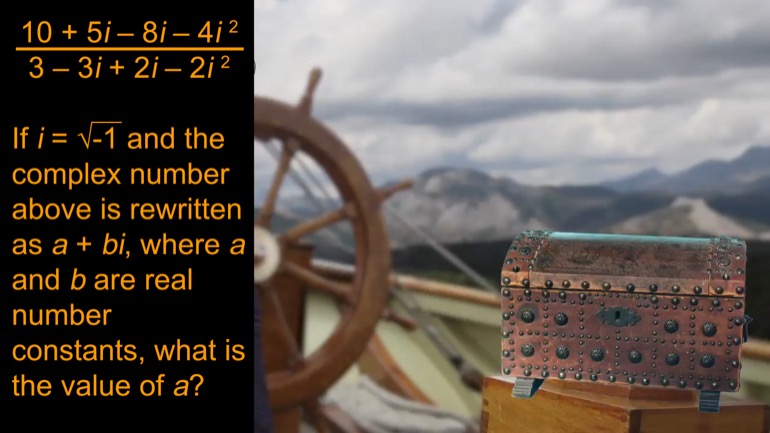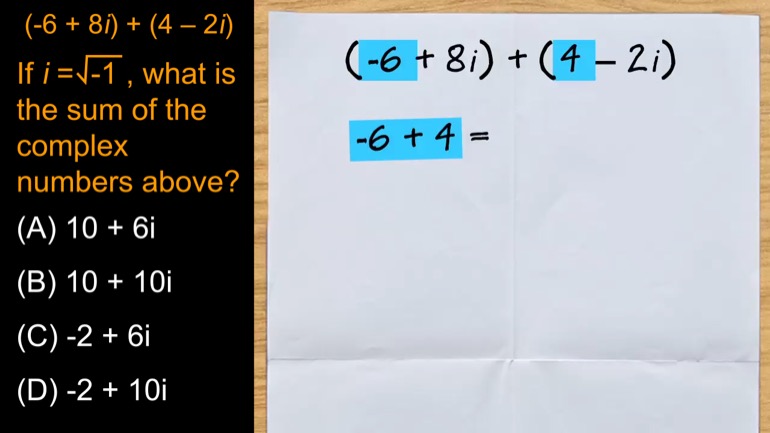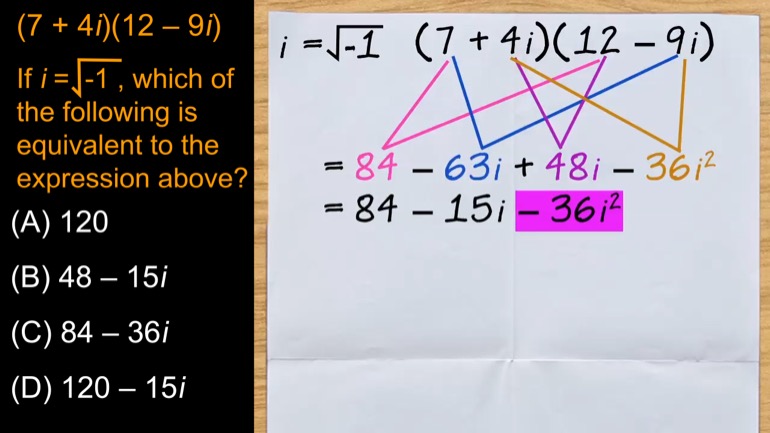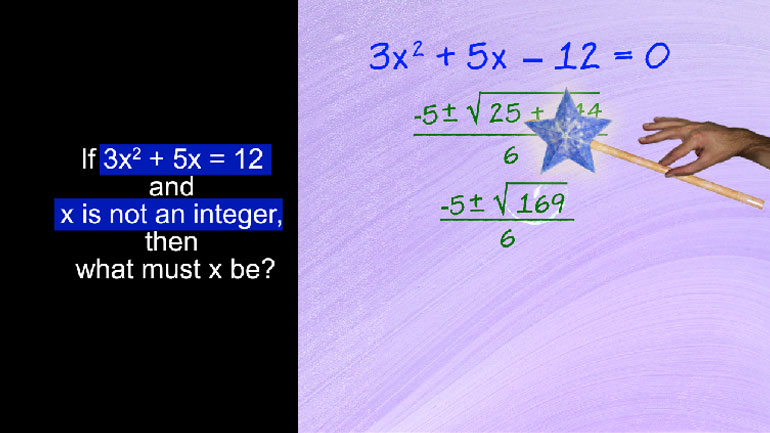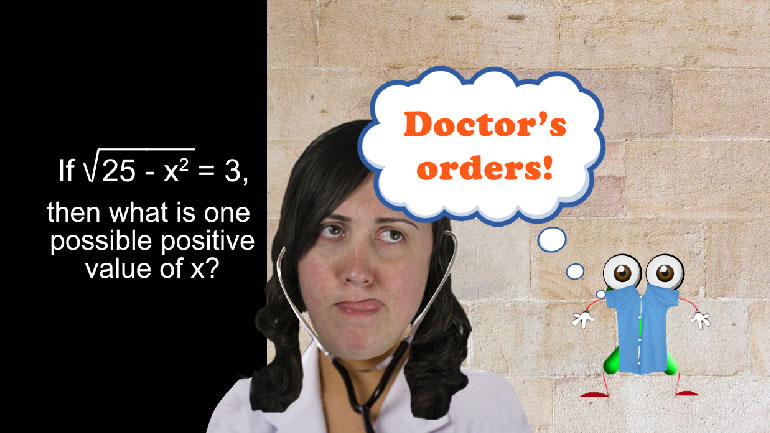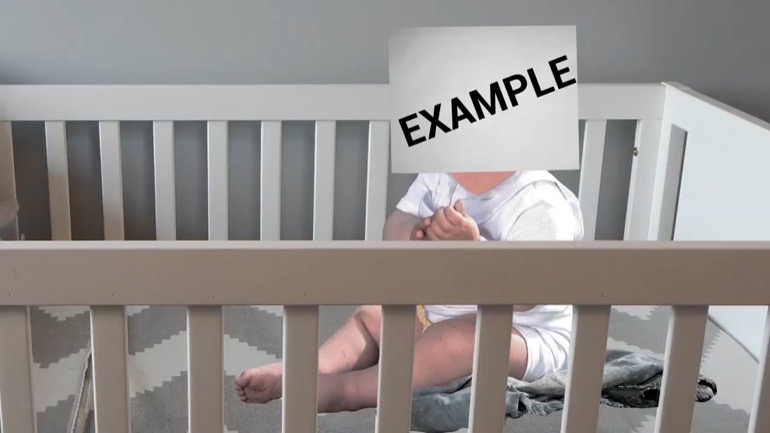ShmoopTube
Where Monty Python meets your 10th grade teacher.
Search Thousands of Shmoop Videos
Numbers and Operations Videos 63 videos
SAT Math 1.1 Numbers and Operations. How many combinations of beverage and cereal can be made?
SAT Math: Numbers and Operations Drill 1, Problem 2. If the masterpiece will be worth $45,055 in five years, what is its worth now?
SAT Math 1.3 Numbers and Operations. x and y must be which of the following?
SAT Math 5.2 Numbers and Operations 200 Views
Share It!
Description:
SAT Math 5.2 Numbers and Operations
Transcript
- 00:02
To Shmoop or not to Shmoop. That is not this question. It's math.
- 00:08
The sum of three consecutive integers is 111.
- 00:11
What is the largest of the three numbers?
- 00:15
Alright, first of all, what is this question even asking? Well, it wants us to find 3 integers that,
- 00:20
when added together, total 111. But the key term here is CONSECUTIVE.
Full Transcript
- 00:26
Meaning that the numbers are all one apart...
- 00:37
And we're only interested in the largest one.
- 00:39
The best way to solve this is with a little algebra.
- 00:42
We’ll represent the smallest of the three numbers with the variable s.
- 00:47
The next number would be s + 1, and the largest number would be s + 2.
- 00:51
All three numbers added together equal 111.
- 00:55
And the equation then looks like: s + s + 1 + s + 2 equals 111.
- 01:01
Add like terms....s plus s plus s equals 3s…and 1 plus 2 equals 3.
- 01:08
So 3s + 3 equals 111. Subtract 3 from both sides to get 3s equals 108.
- 01:16
Divide both sides by 3 to get s equals 36.
- 01:21
If the smallest number, s, is 36, that means the largest number, s+2, is 38.
- 01:27
And we're done.
Related Videos
SAT Math 2.1 Geometry and Measurement. What is the measure of angle z in terms of x and y?
In 2014, the unemployment rate of one county in California was 7%. In another county, the unemployment rate was 11%. Which of the following express...
Angela is making cookies for a bake sale. She expects each batch of her cookies to sell for $40. It costs her $10 to make one batch of cookies, and...
